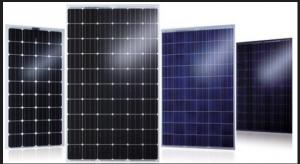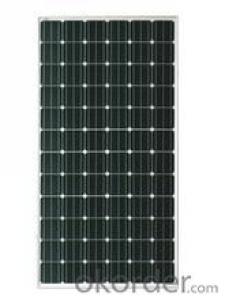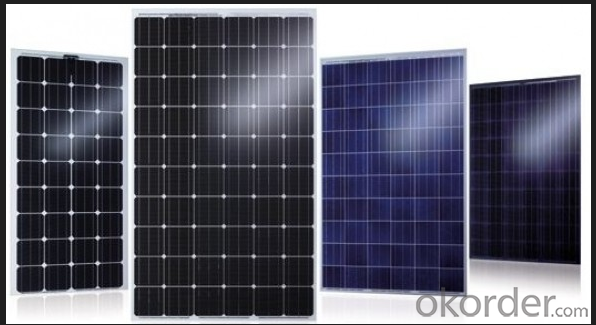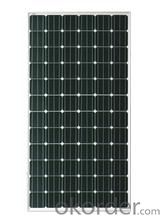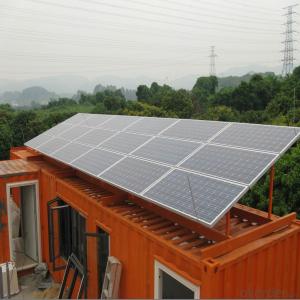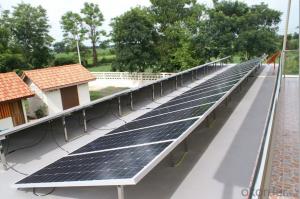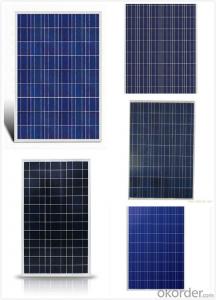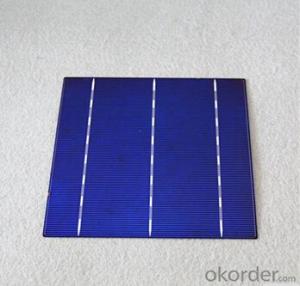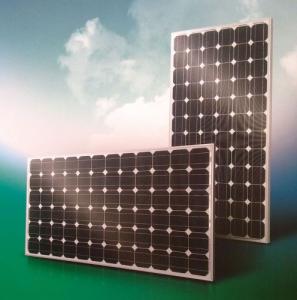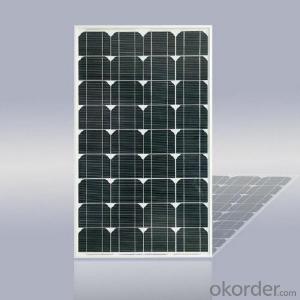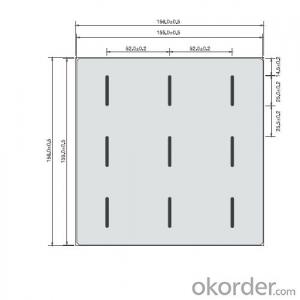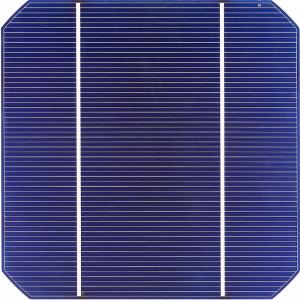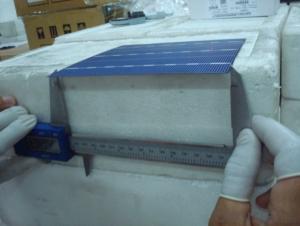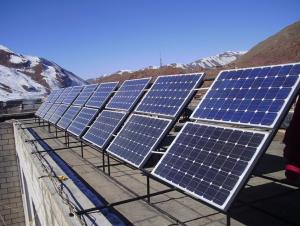Tmd Solar Cells - High Quality, Affordable Solar Cells from China
- Loading Port:
- China main port
- Payment Terms:
- TT or LC
- Min Order Qty:
- 100 m.t.
- Supply Capability:
- 10000000000 m.t./month
OKorder Service Pledge
OKorder Financial Service
You Might Also Like
Quick Details
Packaging & Delivery
| Packaging Detail: | Standard export carton for container order, extra pallet for LCL. |
| Delivery Detail: | 15-20 days for 300KW after recept of deposit |
Specifications
250w solar panel
CE, ISO9001,TUV approved
7-15 days delivery for 120KW
20 years product guarantee
carbon free energy solar cell 250w 260w monocrystalline silicon solar panel ,TUV,CE
EJ60M is a good selling type. It features A-grade high efficiency monocrystalline solar cells and is assembled in compliance with EJAI’s unique quality standards. Featuring 60 6” solar cells, the EJ60M not only is a preferred option for residential systems, but also proved to be a great match for commercial and large-scale applications
Specification:
Model | EJ60M-250 | EJ60M-255 | EJ60M-260 |
Maximum Power (Pmax) | 250Wp | 255Wp | 260Wp |
Power Density (Wp/m2) | 153.7 | 156.7 | 159.5 |
Maximum Power Voltage (Vmp) | 30.52V | 30.62V | 30.70V |
Maximum Power Current (Imp) | 8.19A | 8.33A | 8.47A |
Open-Circuit Voltage (Voc) | 37.54V | 37.66V | 37.76V |
Short-Circuit Current (Isc) | 8.84A | 8.99A | 9.14A |
Cell Efficiency | 17.9% | 18.3% | 18.7% |
Module Efficiency | 15.4% | 15.7% | 16% |
No. of Diodes | 6 | ||
Maximum System Voltage | 1000V | ||
Maximum Series Fuse Rating | 15A | ||
Power Tolerance | -0/+3% | ||
Temperature Coefficients of Pmax | -0.43%/°C | ||
Temperature Coefficients of Voc | -0.3%/°C | ||
Temperature Coefficients of Isc | +0.04%/°C | ||
Nominal Operating Cell Temp. (NOCT) | 45±2°C | ||
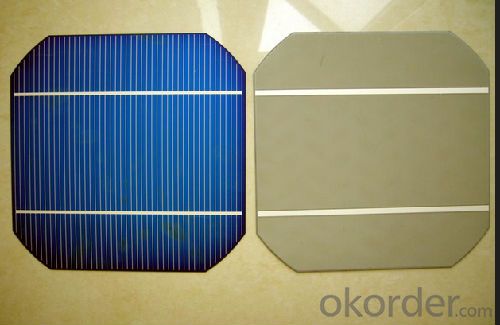
FAQ:Could you introduce your company ?
CNBM is a China state owned company ,one of Global Fortune 500 .
- Q: What do the solar cell suppliers provide once we purchase the order from the solar cells from them.
- The good solar cells suppliers do not only sell you the solar cells products, they also give you very useful suggestions to help you install it.
- Q: Where and how can we find the best solar cells suppliers?
- The good solar cell supplier won't just show up at your door, you need to dive into the solar cell market and get to know them by visiting the factories.
- Q: What is the role of solar cells in powering electric fences?
- The role of solar cells in powering electric fences is to convert sunlight into electrical energy, which is then stored in batteries. This stored energy is used to power the electric fence, providing a continuous and reliable source of electricity without the need for a traditional power source or connection to the electrical grid.
- Q: Can solar cells be used for powering communication systems?
- Yes, solar cells can be used for powering communication systems. Solar cells are capable of converting sunlight into electricity, which can be utilized to power various devices and systems, including communication systems. This makes solar cells a sustainable and environmentally friendly option for powering communication networks, especially in remote or off-grid areas where access to traditional power sources may be limited.
- Q: Can solar cells be used in powering irrigation systems?
- Yes, solar cells can be used to power irrigation systems. Solar panels can convert sunlight into electricity, which can then be used to power pumps and other components of an irrigation system. This is a sustainable and cost-effective solution, especially in areas with abundant sunlight, as it reduces the dependency on traditional energy sources and can provide a reliable source of power for irrigation.
- Q: Can solar cells be used in aviation or aerospace applications?
- Yes, solar cells can be used in aviation or aerospace applications. Solar cells are commonly used in satellites to generate electricity from sunlight. They can also be used in unmanned aerial vehicles (UAVs) or drones to power their systems and extend their flight time. Additionally, some experimental aircraft have integrated solar panels to supplement their power needs.
- Q: What is the maximum efficiency of a solar cell?
- The maximum efficiency of a solar cell is determined by the Shockley-Queisser limit, which states that the theoretical maximum efficiency is around 33.7%. However, in practical applications, the highest efficiency achieved by commercially available solar cells is currently around 26-27%.
- Q: How do solar cells perform in areas with high levels of sandstorms?
- Solar cells may face challenges in areas with high levels of sandstorms. The sand particles in the air during a sandstorm can potentially cover the surface of solar panels, reducing their efficiency. Moreover, sandstorms may also cause physical damage to the solar cells and their supporting structures. Therefore, it is crucial to implement proper maintenance and protection measures, such as regular cleaning and the use of protective coatings, to ensure optimal performance of solar cells in areas prone to sandstorms.
- Q: How do solar cells handle snow or ice accumulation?
- Solar cells are designed to be durable and able to withstand snow or ice accumulation. However, when covered by snow or ice, their energy production is significantly reduced. Some solar panels are designed with a tilted angle and smooth surface, allowing snow to slide off easily. Additionally, the dark color of solar cells helps them absorb sunlight and melt the snow or ice faster. In extreme cases, manual removal of snow or ice may be necessary to restore optimal energy generation.
- Q: How is the solar cells factories working in China? Do they follow certain quality standards?
- Yes, they follow the standard quality assurance protocol, and they are doing very well.
Send your message to us
Tmd Solar Cells - High Quality, Affordable Solar Cells from China
- Loading Port:
- China main port
- Payment Terms:
- TT or LC
- Min Order Qty:
- 100 m.t.
- Supply Capability:
- 10000000000 m.t./month
OKorder Service Pledge
OKorder Financial Service
Similar products
Hot products
Hot Searches
Related keywords
